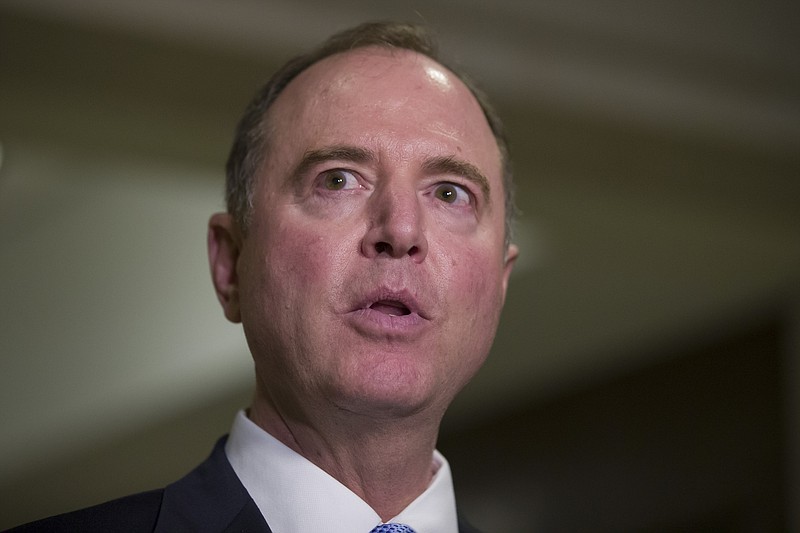"You have a president who, in my opinion, beyond a shadow of a doubt, sought to, however ham-handedly, collude with the Russian government, a foreign power, to undermine and influence our elections." - Beto O'Rourke, presidential candidate
"I think there's plenty of evidence of collusion and conspiracy in plain sight." - Rep. Adam Schiff, chairman of the House Intelligence Committee
"I called (Trump's) behavior treasonous, which is to betray one's trust and aid and abet the enemy, and I stand very much by that claim." - John Brennan, former CIA director
"The biggest scandal in U.S. history is coming into focus. On Friday, Rachel Maddow made it clear. Donald Trump conspired with the enemy." - Rob Reiner, film director
Maybe it's time to declare a national sabbath. Maybe it's time to step back from the scandalmongering and assess who we are right now.
Democrats might approach this moment with an attitude of humility and honest self-examination. It's clear that many Democrats made grievous accusations against the president that are not supported by the evidence. It's clear that people like O'Rourke and Brennan owe Donald Trump a public apology. If you call someone a traitor and it turns out you lacked the evidence for that charge, then the only decent thing to do is apologize.
Republicans and the Sean Hannity-style Trumpians might also approach this moment with an attitude of humility and honest self-examination. For two years they've been calling the Mueller investigation a witch hunt. For two years they've been spreading the libel that there are no honest brokers in Washington. It's all a deep-state conspiracy, a swamp. They should apologize for peddling the sort of deep cynicism that undermines our country's institutions.
And what about the rest of us? What about the superstructure of scandal politics we have built and live in today?
The sad fact is that Watergate introduced a poison into the American body politic. Richard Nixon's downfall was just and important, but it opened up the mouthwatering possibility that you don't need to do the hard work of persuading people to join your side. Instead, you can destroy your foes all at once through scandal.
Politics since Watergate has been defined by a long string of scandals and pseudo-scandals - Iran-Contra, Whitewater, Valerie Plame, Benghazi, Solyndra, swift-boating. Politico last year compiled a list of 46 scandals that were at one time or another deemed "worse than Watergate."
The political media, especially on TV, now has a template it can apply whenever a scandal looms into view, to hook viewers into the speculative storyline. According to the Tyndall Report, the three main broadcast networks made the Russia collusion investigation the second-most-covered news event of 2018, trailing only the Kavanaugh hearings, another scandal.
All the players slip into their assigned roles. Straight reporters are doing good, hard work. But the flow of information is not fast enough to keep up with 24/7 programming, so you get this toxic deluge of raw speculation.
The accused's political opponents assume maximum guilt. Imaginative pundits take a few dots of information and connect them to vast, if speculative, constellations of guilt. "I hear the indictments are coming down next week," they whisper to one another.
It's all a wonderful game. You don't have to know anything about a boring policy subject like economics, poverty or foreign affairs. You can have a long career in politics and media by simply treating public life as an arena of life-or-death gossip.
The ray of hope is that out on the campaign trail voters rarely ask about the scandals du jour, which obsess the cognoscenti. Most of the Democratic presidential candidates spent the past few months trying not to talk about Russian collusion. How do you provide affordable health security? Is China a mortal foe?
The Democrats won the 2018 midterms by focusing on the issues, not collusion. For most voters, politics is about their lives, not a self-righteous TV show.
The New York Times
